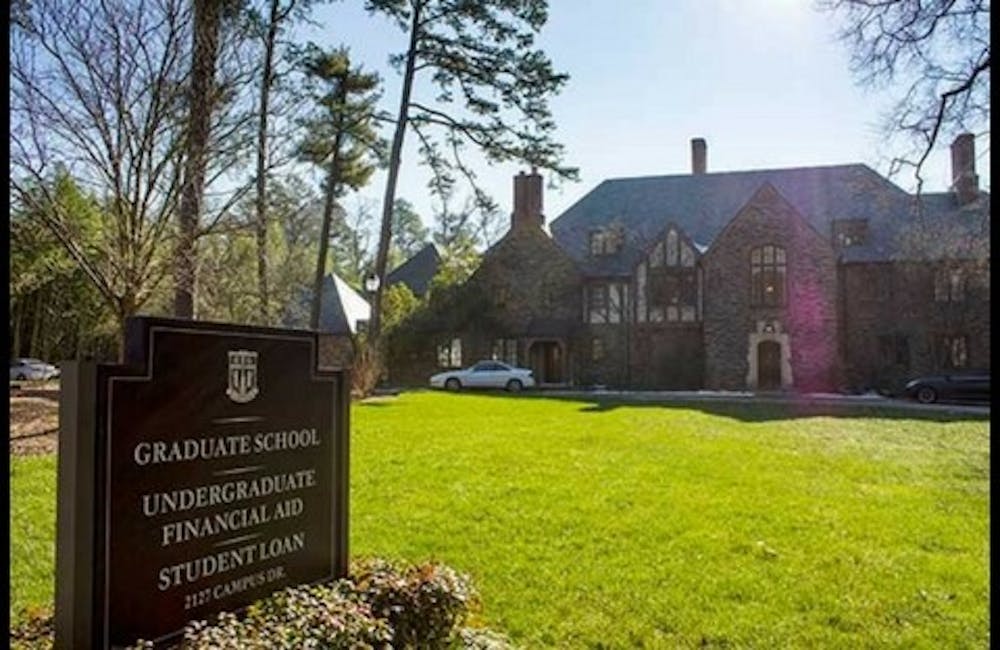Duke is launching a new program focused on increasing its population of underrepresented minority students studying science and engineering at the graduate level.
Funded by a $1 million grant from the Alfred P. Sloan Foundation, the University Center of Exemplary Mentoring program will award 10 scholarships of $40,000 over five years to students who pursue paths in biology, chemistry, civil and environmental engineering, computer science, electrical and computer engineering, material science and mechanical engineering. The scholars will also have access to a support network of faculty mentors to help them prepare for careers in STEM fields.
“The very successful culture of educating the next generation of scientists, mathematicians and engineers is to engage young, aspiring, well-prepared people in frontier research with experienced scientists and experts,” wrote Calvin Howell, professor of physics and co-principal investigator for the UCEM, in an email. “Given that genius resides in every generation, this endeavor applies intellectual energies from the perspectives of multiple generations.”
The program, which will also be funded by the Office of the Provost and the Graduate School, will be the ninth such program in the country. In addition to providing the students scholarships, the program aims to ensure that the participants succeed academically and are ready for their careers by the time they graduate.
Howell said that accepted applicants will have opportunities to conduct research with groups in their departments prior to starting graduate school.
"This early start will facilitate formation of mentorship relations, introduce students to graduate research and acquaint the student to experienced graduate students within the department," he said
He added that the program would not only benefit its participants but also Duke as an institution by increasing its competitiveness in recruiting the strongest graduate school candidates across the country.
The scholarship is a part of continuing efforts to increase diversity in graduate programs, especially in STEM fields.
Jacqueline Looney, senior associate dean for graduate programs and associate provost for academic diversity, said that the University has instituted recruitment initiatives targeting underrepresented minorities since the mid-1980s. Such efforts have included working with undergraduate research programs at historically black colleges and universities to attract students to Duke.
“We have also had a summer research opportunity program that we have been running since 1996,” Looney said. “[The program] was very instrumental in us building connections with undergraduate institutions to have underrepresented students spend time in the labs of our faculty members. That’s been a key driver [of UCEM].”
However, Paula McClain, dean of the Graduate School and vice provost for graduate education, said in an email that such efforts have not been entirely successful. The proportion of successful Ph.D. graduates from underrepresented groups in Duke's graduate STEM programs still do not reflect the demographics of the country, McClain said.
“There are ongoing efforts to address this. Thanks to the generosity of the Sloan Foundation, those efforts will get a boost from the UCEM," she said.
The arrangement with the Alfred P. Sloan Foundation involves a grant established with the aim of recruiting 30 scholars over three years. The grant could be renewed after three years if the program successfully increases underrepresented minority representation across STEM disciplines and provides the Sloan scholars with a supportive network.
“Our hope is that we are successful and that the Sloan Foundation would agree with the opportunity to renew the grant. As the University moves forward, I think that gives us grounding to institutionalize this kind of effort,” Looney said.
The six major components of the program are recruitment and admissions, academic support, mentoring, professional development, student well-being and financial support. The scholars will receive academic support and mentoring as they build relationships with faculty.
“We have also enlisted a group of our staff psychologists who will work with us in developing strategies to support the well-being of the students with the department and the faculty member," Looney said.
The first cohort of Sloan Scholars is now being recruited by the program’s leadership and faculty members. Looney said the program is the product of a commitment to increasing opportunities for underrepresented students.
“We had an incredible group of faculty members, administrators and senior leaders that were involved in helping us craft this particular initiative,” Looney said.
Get The Chronicle straight to your inbox
Sign up for our weekly newsletter. Cancel at any time.

